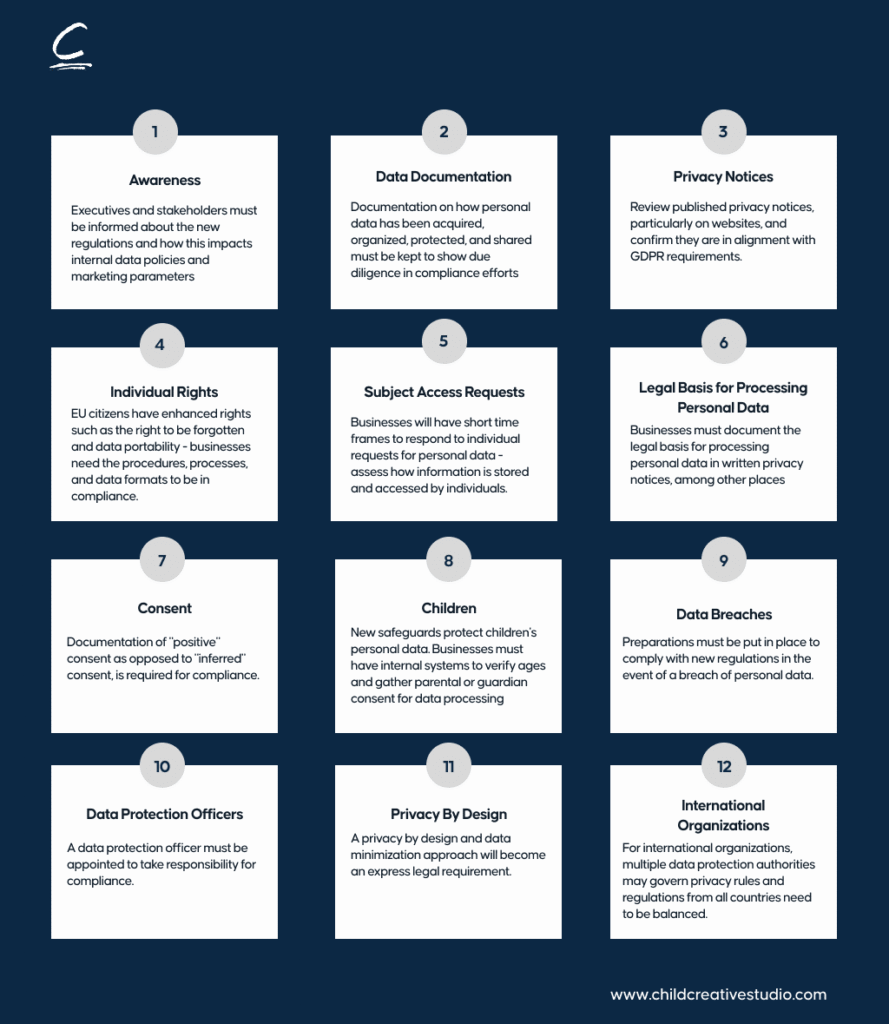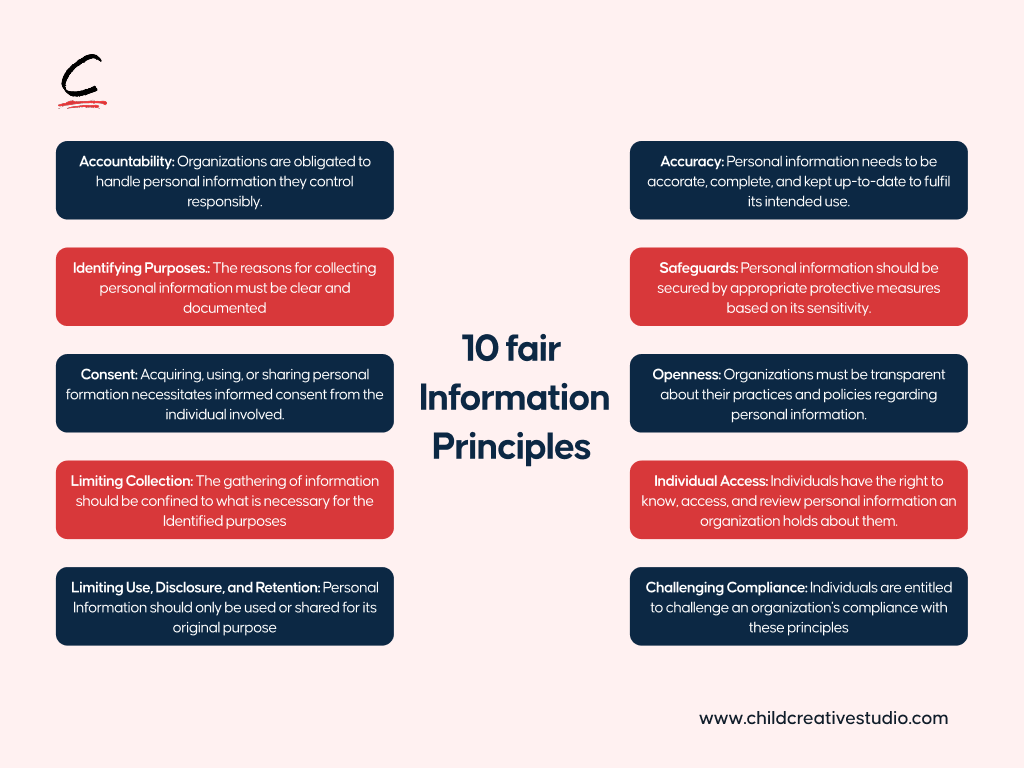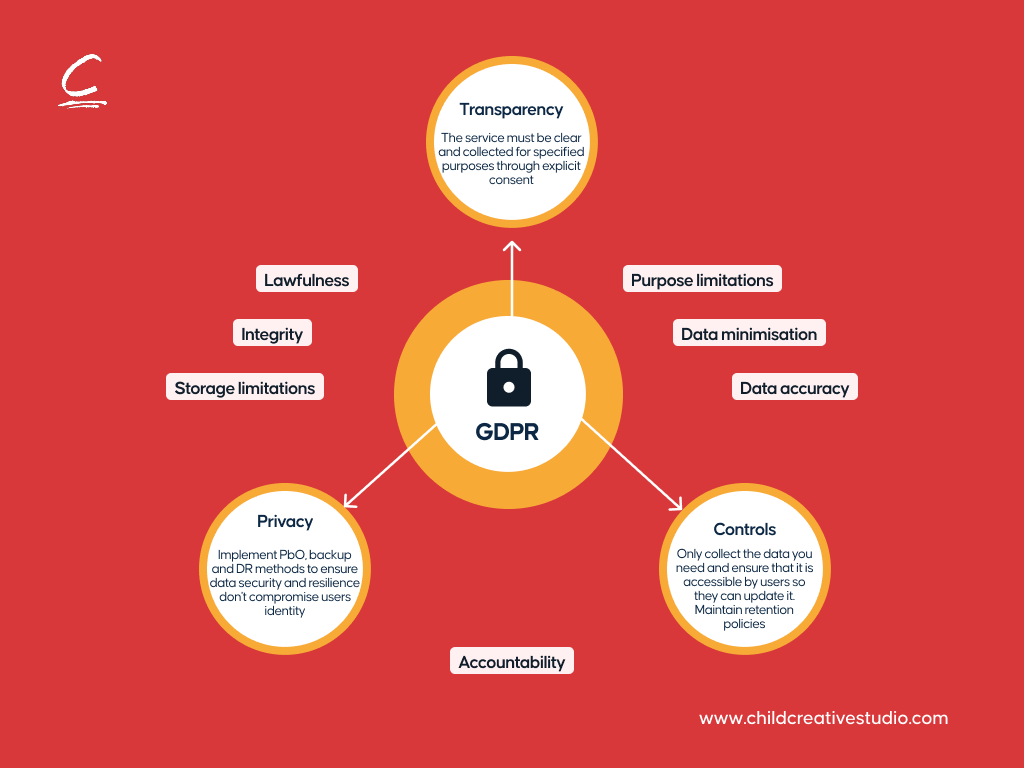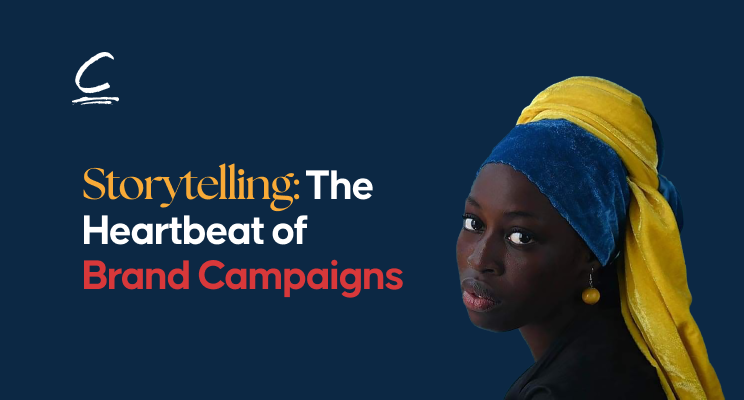
How to Be GDPR-Compliant Online: UK Small Businesses
How to Be a GDPR-Compliant: Marketing and Website Design
For UK-based small businesses, navigating the age of heightened data privacy awareness is paramount. GDPR compliance is not merely a legal obligation stemming from the UK’s data protection laws post-Brexit (which mirror the EU GDPR); it’s a fundamental requirement for building and maintaining trust with customers. In 2025, demonstrating a clear commitment to UK data protection through compliant website design and ethical marketing practices is a key differentiator, helping your brand stand out amidst the noise. This article explores how prioritising compliance can be a powerful strategy for building loyalty and enhancing your brand reputation.
GDPR in Website Design
Your website is the digital face of your business, and its design plays a crucial role in signalling trustworthiness. In the UK, compliance needs to be integrated into the design process from the outset, rather than being an afterthought.
Key elements of a GDPR compliant website design include:
- Clear and Accessible Privacy Policy: A comprehensive, easy-to-understand website privacy policy is non-negotiable. It must clearly explain what data is collected, how it’s used, why it’s collected, how long it’s kept, and how users can exercise their rights (access, rectification, and deletion of their data). This policy needs to be easily findable from every page, typically linked in the footer.
- Robust Cookie Consent Mechanism: The “cookie banner” is a familiar sight, but effective cookie consent requires more than just a banner. Users must be given clear options to accept or reject non-essential cookies, with granular controls allowing them to choose which types of cookies they consent to. Pre-checked boxes are not compliant. The system must also remember user preferences.
- Secure Data Collection Forms: Any forms collecting personal data (contact forms, newsletter sign-ups, checkout pages) must be secure (using HTTPS) and include clear notices about data usage, linking directly to the privacy policy. Consent for specific uses (like marketing emails) must be opt-in and clearly separate from simply submitting the form.
- User Rights Mechanisms: The website design should facilitate users exercising their GDPR rights, perhaps through a dedicated privacy dashboard or clear instructions on how to submit requests regarding their data.
Integrating these compliant design features may seem technical, but it’s a vital step in creating a unique visual identity that communicates integrity. It shows customers you respect their privacy, which is a powerful trust signal. For a startup seeking guidance on how to build a brand identity in the UK, weaving compliance into the core design reflects maturity and responsibility from day one.
Read more: The UK ICO (Information Commissioner’s Office) website section on cookies.
Marketing: Ethical Practices Under GDPR
Ethical marketing is inextricably linked with GDPR compliance. It’s about using customer data responsibly and communicating with respect for their privacy choices.
- Lawful Basis for Processing: All marketing activities involving personal data (sending emails, targeted ads, using CRM data) must have a lawful basis under GDPR, such as consent, contractual necessity, or legitimate interest. For most marketing emails in the UK, clear, opt-in consent is required.
- Transparent Communication: Be upfront about how customer data drives your marketing efforts. Your brand storytelling should subtly weave in the narrative of how you use data responsibly to provide value and personalise experiences, rather than just for intrusive targeting.
- Easy Opt-Out: Every marketing communication must include a clear and easy way for recipients to withdraw their consent or object to processing (e.g., an unsubscribe link in emails).
- Due Diligence with Third Parties: If you use third-party marketing tools, analytics platforms, or advertising networks, you are responsible for ensuring they are also GDPR compliant. This requires careful vetting of your technology partners.
Implementing these compliant marketing practices requires more than just a marketing plan; it needs a strategic approach to data. A marketing consultancy like Child Creative Production Studio, which understands UK data protection, can help you design campaigns that are both effective and compliant, ensuring your efforts to improve brand recognition are built on a foundation of trust. For marketing automation SMEs, this is crucial for long-term sustainability and avoiding potentially hefty fines.

Compliant Content & Multimedia: Respecting Rights Visually
Compliance extends to the multimedia production company services you might use and the content you create. Using photos, videos, and other visual assets involving identifiable individuals requires careful consideration under GDPR.
- Consent for Imagery: If you use photos or videos featuring individuals who can be identified, you generally need their explicit consent to use their image for specific purposes (e.g., on your website, in marketing materials). This is particularly important for testimonials or showcasing customer success stories. This needs to be managed carefully by your multimedia production company.
- Licensing and Usage Rights: Ensure you have the appropriate licenses for stock photos or videos. While stock photos of generic scenes are usually fine, using images of identifiable people requires checking that the license covers your intended use under privacy laws.
- User-Generated Content: If you feature user-generated content, ensure you have clear terms and conditions that permit you to use the content and that the user confirms they have the rights and necessary consents for any individuals featured in their submission.
A creative agency or multimedia production company like Child Creative Studio that is knowledgeable about data protection can guide you on best practices for visual content, ensuring your artistic brand development and creative business branding efforts don’t fall foul of privacy regulations. They understand that a visual identity rooted in art must also be rooted in respect for individual rights.

Compliance as a Competitive Advantage & Trust Signal
Authenticity and trust are powerful differentiators. For UK businesses, particularly startups and SMEs, demonstrating a clear commitment to GDPR compliance is not just about avoiding penalties; it’s about actively building credibility.
Customers are increasingly aware of their data rights and are more likely to engage with brands they perceive as trustworthy custodians of their information. Research consistently shows that transparency regarding data usage has a positive impact on customer loyalty. For businesses seeking to make their brand recognised, being known as a brand that genuinely respects privacy is a strong, positive attribute. It helps increase brand loyalty.
Partnering with agencies that understand this is crucial. When looking into a creative agency selection process, include questions about their approach to data privacy and compliance in design and marketing. An agency that understands startup marketing will recognise the importance of incorporating compliance early. Similarly, when inquiring about how much professional branding costs, it should include the agency’s expertise in building a compliant digital presence, as this is a foundational element for a premium brand identity.

FAQs: GDPR, Trust, and Your Business
Here are some frequently asked questions about GDPR, trust, and digital practices for UK businesses:
- Does Brexit mean GDPR no longer applies to UK businesses? No. The UK has incorporated GDPR into its law as “UK GDPR.” While there are some minor differences, the core principles and obligations remain very similar. UK businesses dealing with EU citizens must still comply with EU GDPR.
- What are the biggest GDPR risks for a UK SME website? Lack of a clear privacy policy, non-compliant cookie banners, collecting excessive data, and failing to get proper consent for marketing are common pitfalls.
- How can I make my cookie consent banner compliant? It must allow users to accept or reject non-essential cookies, provide granular control over cookie types, not use pre-checked boxes, and clearly explain what the cookies do.
- Is using customer data for social media targeting compliant with data regulations? It can be, but you need a lawful basis (often consent) and must be transparent in your privacy policy. Customers must also be able to object to this processing.
- How can a branding agency help with GDPR compliance? A good UK branding agency for SMEs will ensure privacy links are prominent, consent mechanisms align with your brand’s look and feel (while being legally sound), and help craft brand messaging that reflects your commitment to data protection as part of your value proposition.
Building the Future on a Foundation of Trust
In 2025, success for UK businesses digitally hinges on building and maintaining customer trust. GDPR compliance is not just a legal requirement; it’s a strategic opportunity. By investing in GDPR compliant website design, adopting ethical marketing practices, and handling multimedia content responsibly, businesses can demonstrate their commitment to data protection. This builds credibility, enhances brand reputation, and builds the loyalty needed for sustainable growth.
Partnering with Child Creative Production Studio, using our unique creative style and a strong understanding of compliance, ensures that your brand’s story is not only compelling but also built on an unshakeable foundation of trust.




Leave a Reply